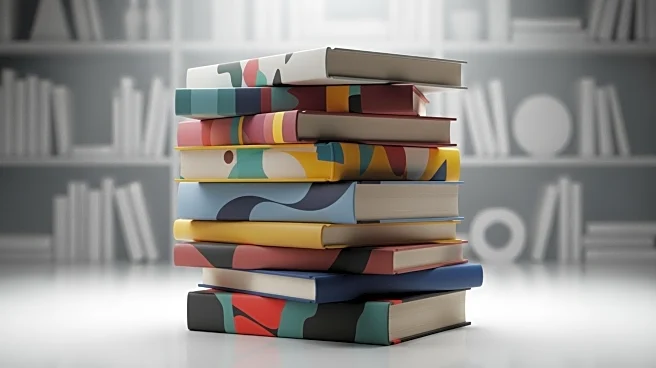What's Happening?
NPR has spotlighted several new book releases that challenge traditional genre boundaries, offering readers a unique blend of memoir, fiction, history, and philosophy. Among the highlighted works is Ha
Jin's novel, which explores the aftermath of the Tiananmen Square massacre through the eyes of a fictional Chinese graduate student in the U.S. Gish Jen's 'Bad Bad Girl' defies categorization as either memoir or novel, focusing on a complex mother-daughter relationship. Claire Louise-Bennett's 'Big Kiss, Bye-Bye' delves into the inner life of its narrator, reflecting on love and relationships. Julia Ioffe's 'Motherland' combines memoir, history, and reportage to examine the role of women in Russia's past and present. Jaquira Díaz's 'This Is the Only Kingdom' transitions from memoir to fiction, exploring generational bonds in Puerto Rican communities. Philip Pullman's 'The Rose Field' concludes his follow-up trilogy to 'His Dark Materials,' continuing the saga of daemons and witches.
Why It's Important?
These books represent a shift in literary trends, where authors increasingly blend genres to create more nuanced narratives. This approach allows for a deeper exploration of complex themes, such as identity, history, and personal relationships, offering readers a richer experience. The blending of genres challenges traditional publishing norms and encourages readers to engage with literature in new ways. This trend could influence future literary awards and the types of stories that gain recognition, potentially reshaping the literary landscape. Authors and publishers may find new opportunities to reach diverse audiences by embracing this genre-fluid approach.
What's Next?
As these books gain attention, they may influence other authors to experiment with genre boundaries, leading to more innovative storytelling. Literary critics and award committees might need to reconsider how they categorize and evaluate such works, potentially leading to changes in award criteria. Readers may become more open to exploring books outside their usual preferences, broadening their literary horizons. Publishers could respond by promoting more genre-blending works, recognizing the growing interest in complex narratives that defy traditional labels.
Beyond the Headlines
The trend of genre-blending in literature raises questions about the future of literary classification and the role of genre in shaping reader expectations. It challenges the notion of fixed categories, suggesting a more fluid understanding of storytelling. This shift may also reflect broader cultural changes, where boundaries in art, identity, and expression are increasingly blurred. The ethical implications of blending fact and fiction, particularly in memoirs, could spark discussions about authenticity and truth in storytelling.










